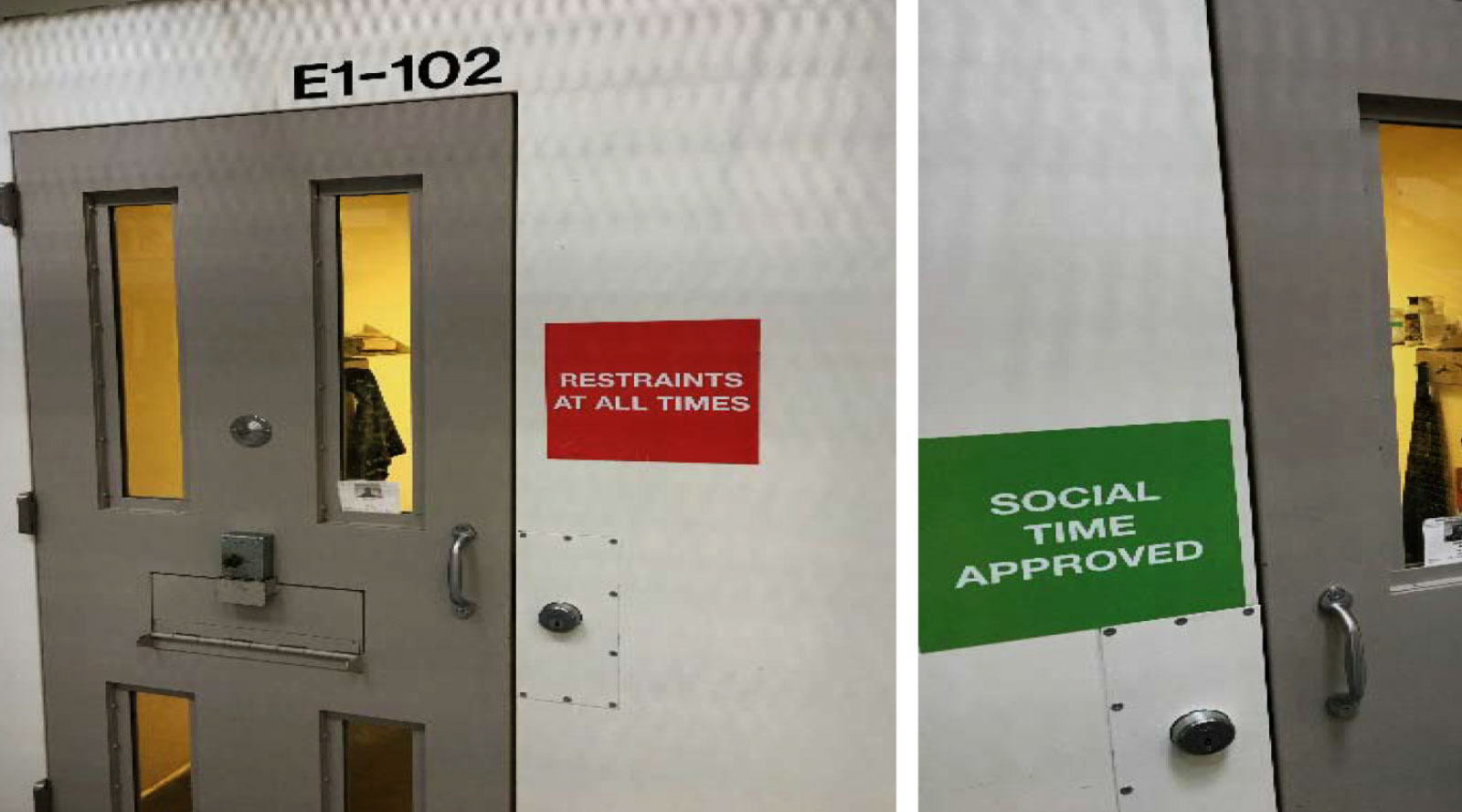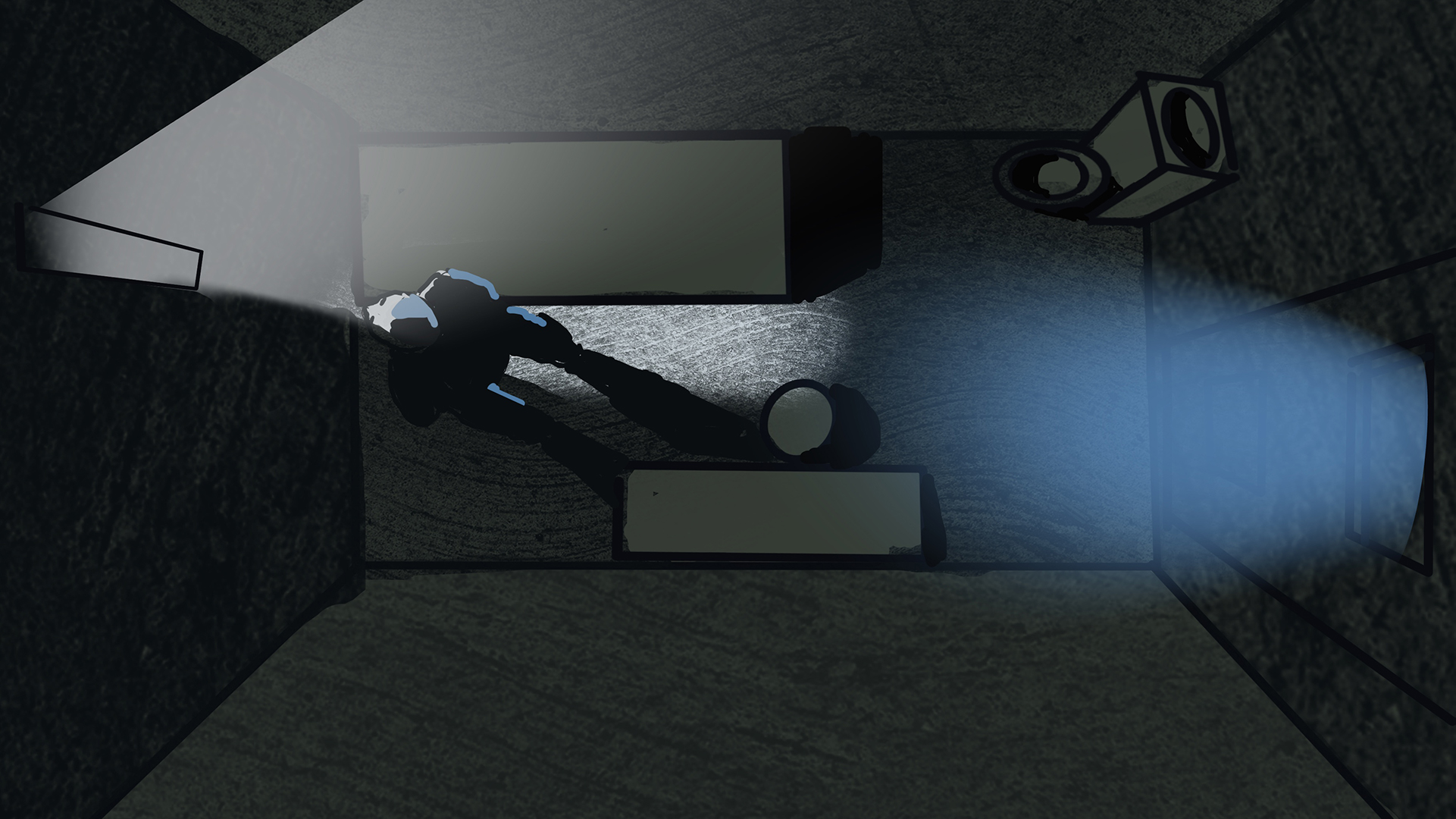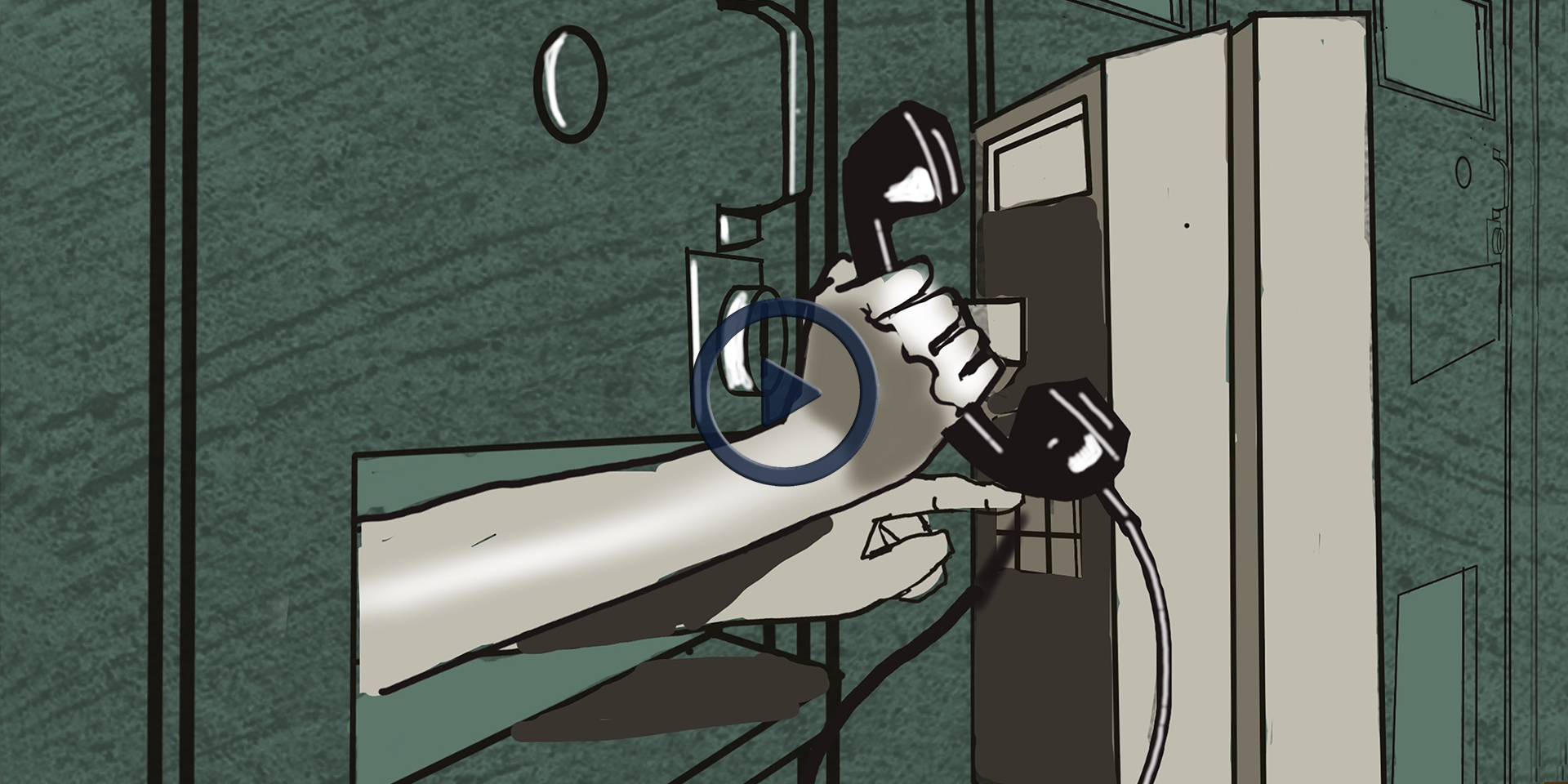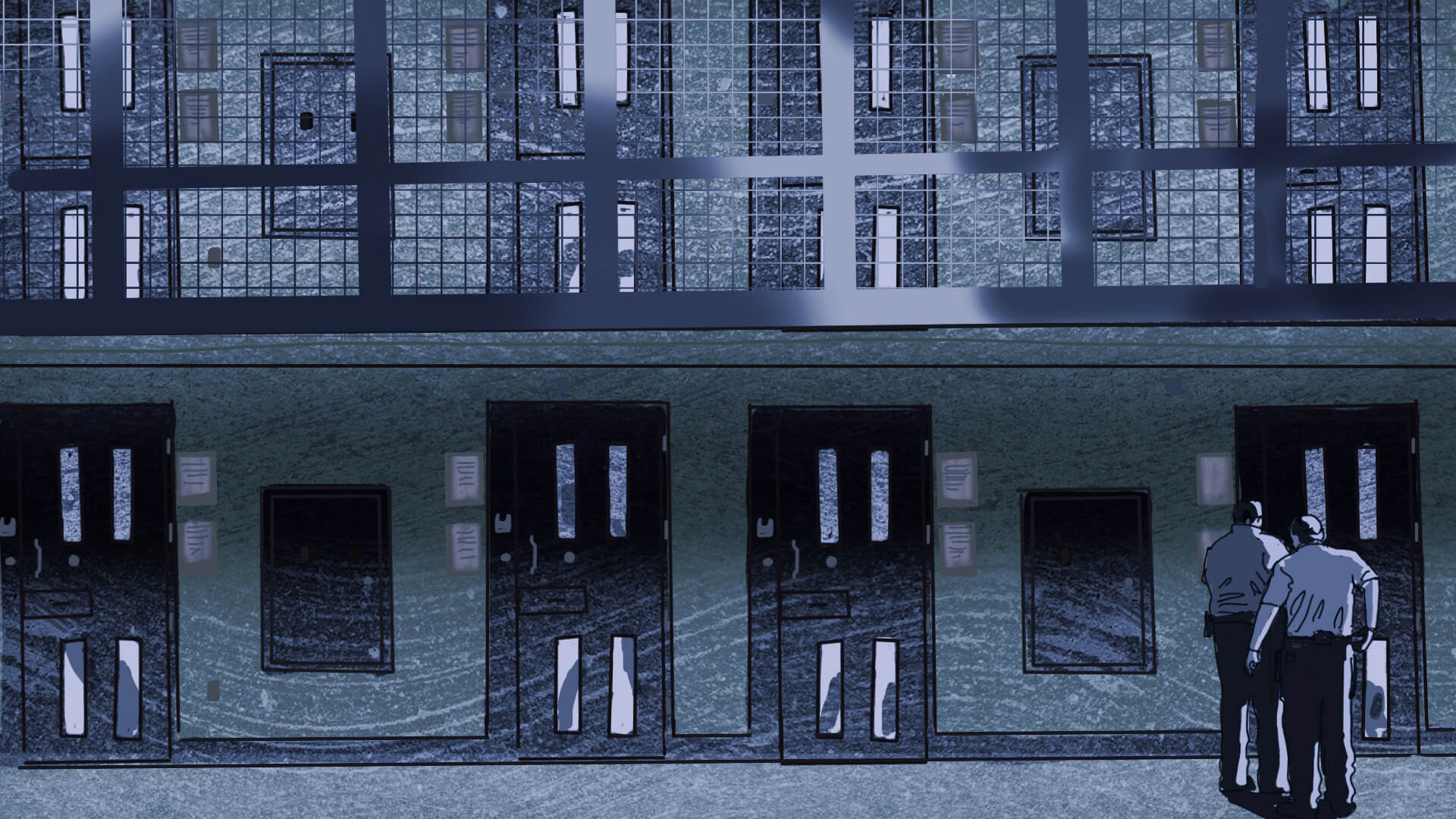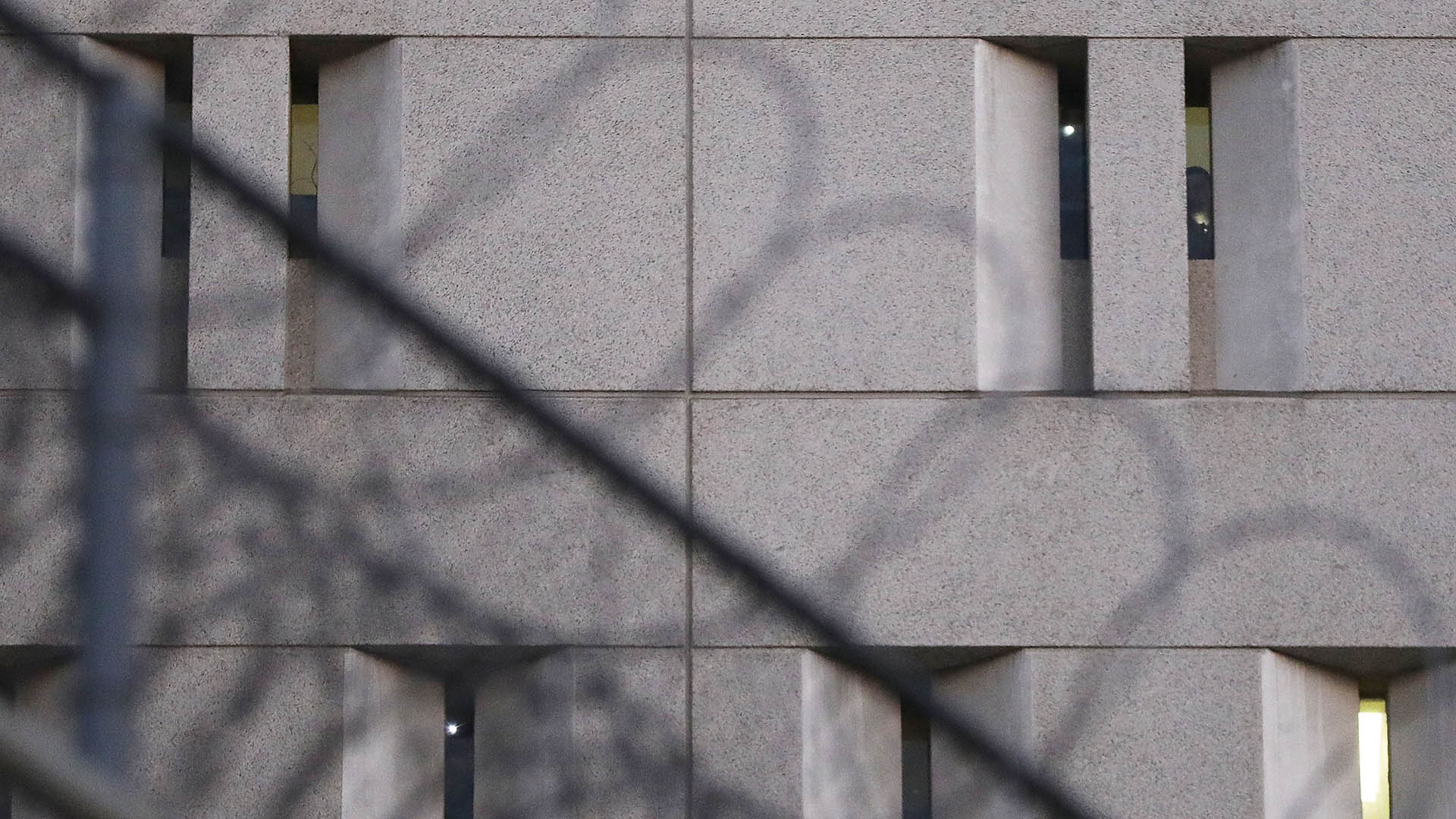Immigrants in U.S. detention centers were punished with solitary confinement for unproven disciplinary violations, and then kept locked in isolation for 24 hours a day, with little access to outdoor recreation or even showers, according to a scathing new report from a government watchdog.
The report, dated June 3, describes surprise inspections conducted by the Department of Homeland Security’s Office of Inspector General of four detention centers overseen by U.S. Immigration and Customs Enforcement (ICE) between May and November of last year.
Inspectors identified “immediate risks or egregious violations” of solitary confinement standards at the Adelanto ICE Processing Center, in California, and the Essex County Correctional Facility, in New Jersey. A third detention center in Aurora, Colorado, used solitary confinement in ways that “infringed on detainee rights,” the report said.
The detention centers were also cited for a host of other violations, including dangerous handling of food and unsanitary conditions.
The inspector general report comes less than two weeks after the International Consortium of Investigative Journalists and its partners released an extensive investigation into U.S. immigration authorities’ misuse and overuse of solitary confinement.
ICIJ and its partners found that ICE detention centers used solitary confinement as a tool of expedience to isolate thousands of the most vulnerable immigrant detainees, including people with severe mental illness, LGBTQ people and the disabled, for weeks and months at a time.
Confinement for 22 hours a day or more in a cell without meaningful social contact can spark panic attacks, rage and suicidal impulses and can severely exacerbate any pre-existing mental illnesses of a detainee. It should be used only in exceptional instances or not at all, many experts say.
The United Nations has said solitary confinement should be banned except in “very exceptional circumstances,” and ICE’s own standards urge the agency to use isolation sparingly, especially with mentally ill and other vulnerable detainees.
ICIJ’s report was based on a groundbreaking analysis of more than 8,400 reports describing individual placements of ICE detainees in solitary confinement.
Among the ICE facilities with the largest number of reports was the privately-run Adelanto Detention Facility, designed to house 1,940 detainees at any given time.
The report detailed various abuses of solitary confinement inspectors found at Adelanto, including detainees being placed in disciplinary segregation before being found guilty of an offense. There were also recordkeeping issues: facility forms incorrectly stated that some detainees were placed in less-restricted “administrative segregation” when they were actually in “disciplinary segregation.”
The Adelanto facility was also found to be denying detainees critical hours of outdoor recreation — or even the ability to maintain proper hygiene — while in segregation. Some “detainees were not offered any recreation or showers while in segregation,” the report stated. “In addition, detainees in administrative segregation were only offered recreation 3 days a week instead of each day.”
Inspectors also found that Essex County Correctional Facility, in New Jersey, was providing immigration detainees in disciplinary segregation only an hour per day outside their cells for showering, calls with attorneys, and recreation time.
Although ICE’s standards say that the mere fact that a detainee is in segregation does not justify automatically placing them in physical restraints, such as handcuffs, when taken out of their cells. But three facilities — Essex, Adelanto, and another GEO Group-run detention center in Aurora, Colorado — violated ICE’s standards by requiring the use of such restraints on all detainees in disciplinary segregation when they were outside their cells.
“Detainees in segregation at Adelanto, Essex, and Aurora were not treated with the care required under ICE detention standards,” the report said.
The inspection of a fourth facility, in LaSalle Parish, Louisiana, did not find violations of segregation rules, but did find that detainees were served old and potentially dangerous food. Bread was out of date by up to one week and often lacked proper labeling and storage. Like the Aurora and Adelanto facilities, Lasalle is also operated by the GEO Group.
The report found even worse problems with detainee food at Essex, where “raw chicken leaked blood all over refrigeration units,” and at Adelanto, where “chicken smelled foul and appeared to be spoiled” and “food in the freezer was expired.”
In an emailed statement, a spokesperson for the GEO Group said the company had last year corrected the issues outlined in the report.
“We take seriously any shortcomings in our delivery of consistent, high-quality care, taking immediate action as needed,” said company spokesperson Pablo Paez. “We always strive to provide culturally responsive services in safe and humane environments that meet the needs of the individuals in the care of federal immigration authorities.”
